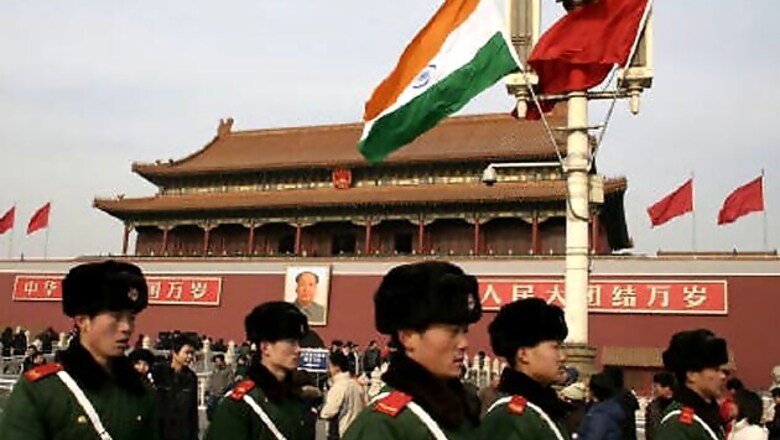
views
New Delhi: External Affairs Minister SM Krishna travels to China next week to consolidate ties, recently improved by a trade boom and cooperation over climate change that shifted the focus away from a border dispute.
The world's two most populous nations are putting the global financial crisis behind them more quickly than developed countries and want to build on a decade of commercial growth that has pushed China to the top of India's list of trade partners.
While Beijing is deep into a spat with the United States over the strength of the yuan currency and Google's battle with Chinese censors, Indian analysts say India and China have much to gain from keeping each other onside.
A turning point seems to have been last December's climate conference in Copenhagen, where India and China helped patch together a deal while facing accusations that they were obstructing a more ambitious agreement.
"The climate did change in Copenhagen. There is a new warmth in China's tone towards India," Sanjaya Baru, former media adviser to India's prime minister, wrote in the Business Standard.
The largest and fourth-largest emitters, China and India want rich nations to take the lead to slow global warming, and will not let their own climate commitments stifle economic growth. Krishna starts his four-day visit on Monday -- scant months after tempers flared over reports of border incursions and a row over the Dalai Lama's visit to the disputed frontier state of Arunachal Pradesh.
MISTRUST OVER BORDER Nearly half a century after war broke out between them, mistrust persists, especially over the 90,000 sq km (35,000 sq. miles) of land in Arunachal Pradesh state claimed by Beijing.
China was incensed when the Dalai Lama visited the state last year and saw it as proof of the exiled Tibetan spiritual leader's separatist machinations. "After the brinkmanship of 2009, on Arunachal Pradesh and Dalai Lama, both sides seem to want to return to a more normal template of pragmatic engagement," Baru wrote.
Ahead of his trip, Krishna said only that India had "some concerns" about its border. "There's a sense I get, of both sides trying not to escalate the war of words," said Siddharth Varadarajan, strategic affairs editor of The Hindu newspaper.
Trade Minister Anand Sharma has called the Chinese currency a concern for Indian industry. But unlike Washington, New Delhi has refrained from putting pressure on China, the world's fastest growing economy, to let the yuan strengthen. The bilateral trade boom has been a mixed blessing for India, now grappling with a deficit in China's favour which ballooned from $1 billion in 2001-2 to $16 billion in 2007-8, according to Indian central bank data.
They can still cross swords over tariffs and perceived protectionist barriers, with India of late initiating more anti-dumping investigations against China than any other country. But both sides say bilateral trade and investment lag far behind their potential and have agreed to even out trade flows. The two countries are expected to lead a 9.5 per cent expansion in global trade volumes projected by the World Trade Organisation in 2010.
Lurking in the background will be Indian suspicions over China's growing military clout. Underscoring Indian jitters, the outgoing National Security Adviser earlier this year said his computers had likely been targeted by Chinese hackers. Also on the list of talking points could be Afghanistan, where India worries it might be losing a struggle for strategic influence with nuclear-armed rival Pakistan.




















Comments
0 comment